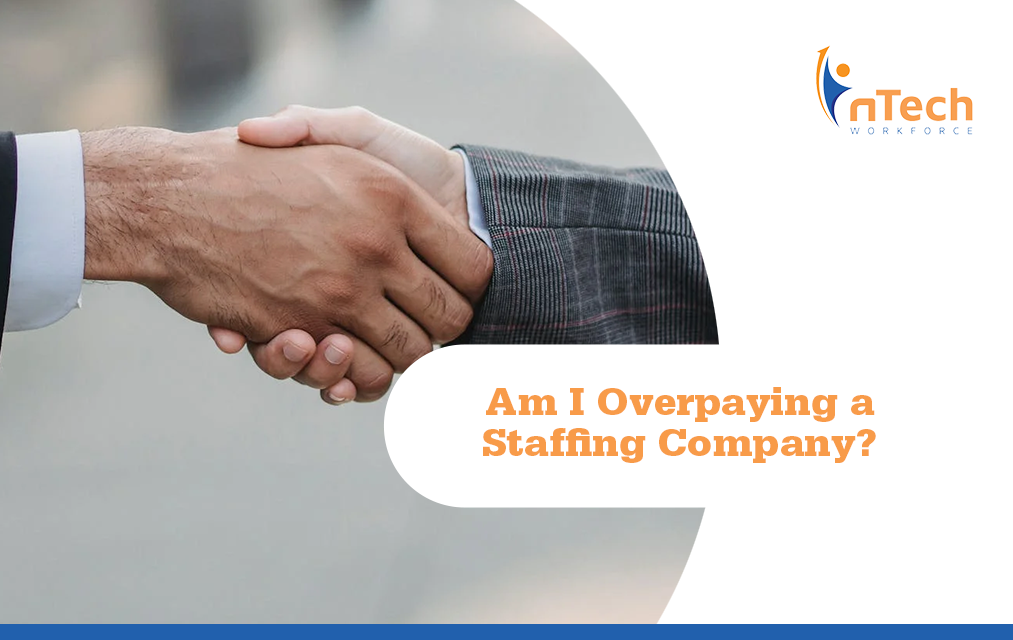
Now is a great time to be looking for a job, but sometimes it can be hard to get your foot in the door, especially for entry-level positions.
Contract-to-hire is one option where both prospective employees and leaders can test the waters before committing to a full-time contract. However, some worry they will never get the opportunity to move from contractor to full-time, and others aren’t so sure about the salary conversion rates.
In this edition of nSider, Arthur Ransier, Director of Business Strategy at nTech Workforce, shares all you need to know about contract-to-hire, and whether this would be a good option for you.
What Is Contract-to-Hire?
According to Ransier, “Contract-to-hire is where you work as a contingent worker, a temporary employee for a period and then there’s the possibility of being hired full-time once the contract is over.”
The big benefit for workers in this dynamic is that “it allows you to work for a company to see if you like it before committing to it full-time.”
Moreover, you gain all of the experience, networking opportunities, and resources of working in that role. This allows you to level up once your contract is complete. However, as a contract worker, you are not considered an employee of the client and therefore do not retain those same privileges.
How Long Are Contract-to-Hire Contracts?
Contract lengths vary. Ransier notes that “contracts can range from a few months to a year or more.” Contract length “largely depends on the job and the company’s needs. Some contracts may have the option to be extended.”
However, some contract term lengths fall around “three, six, or 12 months.” Variances can be based on the amount of time needed, as well as the type of project or need that the business may have.
What Kind of Job Is Contract-to-Hire?
“Contract-to-hire jobs are available in virtually any field. A lot of times they’re in healthcare, finance, and even bioscience or pharmaceutical industries in jobs that range from entry-level to more senior-level roles," says Ransier.
A contract-to-hire position may be especially available and also advantageous for recent graduates since, according to Ransier, companies “give workers some exposure before asking that they commit to it on a more permanent basis.” Contract-to-hire roles also differ from internships in that internships are on the organization’s payroll.
However contract-to-hire positions are not solely for the benefit of prospective employees. Ransier notes that they’re sometimes used “when companies are worried about the possibility of turnover, so contract-to-hire allows a company to control pre-screening, onboarding, and unemployment tax expenses like the 'try before you buy' of hiring.”
Are Contract-to-Hire Jobs Safe? What Are the Pros and Cons?
Contract-to-hire jobs are just as safe as any at-will employment opportunity, where you should be “confident in your ability to add value or do a job with minimal training and are working for a trusted company.”
The obvious con, as Ransier notes, is that “there’s always the risk that a company isn’t going to offer you a permanent job when the contract period is over.”
But as we have seen with the recent tech layoffs, whether you are working on a contract or permanent basis, there is always a possibility that businesses will exercise their rights to terminate a position.
Do Full-Time Employees Make More Money than Contingent Workers?
The answer to whether full-time or contingent workers make more money is complicated. Ransier acknowledges that “permanent employees may receive more robust or comprehensive total rewards filled with a broad variety of benefits. But contingent workers often make more money. High-risk, high-reward roles often make more money than permanent employees.”
This means that it depends on the role, the hours, and the timeline for any position to determine what the take-home amounts to, so it isn’t worth cutting out contract-to-hire options just because they may have a certain categorization.
How Can I Negotiate a Conversion Salary for a Contract-to-Hire Job?
Salary conversion is the process through which a contract employee’s wage is converted into a salary. Ransier advises contractors to “consider your skills and experience when determining what salary to ask for, and be willing to negotiate and consider all the other benefits that might come with a job.”
While there are likely to be significantly better benefits, a reduction in take-home pay is common when converting from a contracted employee through a staffing agency to a permanent employee of a client.
If you’re ready to begin your job search, join nTech’s talent network today!

What Are the Hidden Costs of DIY Hiring That a Staffing Agency Can Help Avoid?
When it comes to hiring, many growing companies lean toward a do-it-yourself (DIY) approach. On the surface, it seems like a smart, cost-effective...

Am I Overpaying a Staffing Company?
When the economy is in flux, organizations look for ways of cutting costs, and that typically begins with outsourced work. Leaders want to see if...


